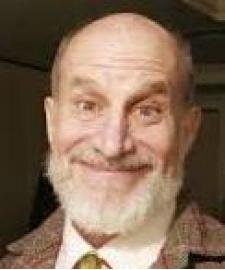"Better Late than Never" - Stephen Mo Hanan Takes the Stage as King Lear
Throughout his years as an actor, Stephen Mo Hanan has performed in a wide range of roles, the variety of which is astounding. After originating the role of Aspara-gus/Growl-tiger in Cats, for which he received a Tony Award nomination, he has also played the villainous Thénardier in Les Miserables and Captain Hook in Peter Pan. His latest role is the titular role in Shakespeare's King Lear, an acting challenge often compared to scaling the Himalayas due to its physical and emotional demands.
When asked about taking on such a famous and difficult role at this point in his career, Hanan responded in a concise manner, quite unlike the verbose king, saying, "Better late than never."
Widely considered one of drama's greatest tragedies, King Lear is the story of an aging king who, after asking which of his three daughters loves him the most, descends into madness as political turmoil unfurls in his kingdom. While Regan and Goneril, two of his daughters, easily exaggerate their feelings for their father, his youngest, Cordelia, says she is unable to speak of her love. Insulted and furious, Lear banishes Cordelia while his older daughters, Regan and Goneril, resort to lying, scheming and violence to obtain and abuse power.
Despite their characters' actions against him in the play, Hanan demonstrated a great deal of sympathy for Regan and Goneril, describing them “the adult children of a rage-aholic, in a pre-therapy age. They think they have no choice but to act out when the occasion permits.”
A story of parental love as well as ambition and insanity, this production of King Lear will be performed in a black box theater at the American Bard Theater Company. To prepare for the production, Hanan said he began memorizing the script before the first rehearsal. Physically he prepared by swimming and practicing yoga, and mentally and psychologically he has been "willing to examine and funnel my own experiences of disappointment and outrage."
Hanan had read and seen the play numerous times, but he said he re-read the script as if it were new, asking himself about King Lear's motivations as well as those of the other characters around him. He also watched videos of other performances of the play and read some scholarly essays, noting that he did not always agree with Harold Bloom.
One of the most famous scenes in King Lear is the king's mad scene in the woods, which Hanan said he prepared for by observing people in New York who are viewed as mentally unstable.
"I started looking with fresh eyes at the street people New Yorkers think of as crazy," he said. "Talking to themselves in the subway. Scolding and arguing with invisible companions. Submerged in private realities no less real to them than the so-called objective world."
An aspect of King Lear Hanan said that resonated strongly with him was the references Lear makes to the "unmanly quality of weeping." Hanan thinks if Lear had become more comfortable with his emotions, he may have experienced a different path in life.
“He’s afraid to be seen crying, a sure sign of the repressed grief that so many men in a patriarchy carry around,” he said. “Once he learns that tears are the pathway to healing that grief, he becomes a new person. Unfortunately, too late.”
When Lear is able to become a new person, he makes peace with Cordelia, his estranged daughter, which Hanan describes as, “one of the most sublime moments in all of theater.”
Despite having been written several hundred years ago, many themes of King Lear relate strongly to a modern-day audience, especially during the fever pitch of election season. Hanan described the motivation of the villain Edmund, saying, “Lust for power and property is the driving force behind Edmund, whose villainy informs the story. People lie like crazy or deceive themselves, to achieve questionable ends. Sound familiar?”
While the characters of Regan and Goneril are both portrayed in unflattering ways in King Lear, Hanan noted, “Bullies come in both genders and do the world no good...The choice all humans are faced with between kindness and cruelty seems as relevant as ever.”

